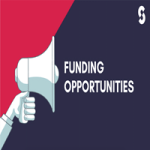
Deadline Date: May 01, 2025
Donor Name: Environmental Research & Education Foundation
Grant Size: Not Available
Category: Grant
Reference URL:https://erefdn.org/research-grants/
The Environmental Research & Education Foundation is seeking proposals for its Research Grant Program.
Priorities
- EREF’s strategic priorities are:
- Climate Change Impacts/Greenhouse Gas Emissions: The solid waste sector contributes to greenhouse gas emissions in a number of direct and indirect ways. EREF is interested in research to better understand the impacts of these emissions, ways to monitor and track emissions, and how the sector can reduce emissions:
- Quantification of greenhouse gas emissions, including direct measurement, modeling, data & methodology:
- Efficacy of direct emissions measurement technologies and variables that impact their ability to quantify whole site landfill emissions.
- Comparing the accuracy of landfill models and GHG reporting methodologies relative to direct measurement technologies.
- Understanding the contribution of GHG emissions from landfills due to hotspot sources versus typical gas field maintenance/upgrade activities.
- Impacts & reduction strategies from waste management collection & disposal options, including waste-to-energy, landfill gas to energy, etc:
- Evaluating which operating parameters provide the greatest emissions reductions (e.g., wellfield density, uptime, negative pressure, cover type)
- Enhancement/development of strategies that minimize GHG emissions (e.g., vertical vs. horizontal gas well designs, working face management etc.)
- Impact of waste management activities, including how they related to broader emissions in manufacturing/re-manufacturing:
- Evaluation of emissions reduction strategies and associated avoided emissions that can be attributed to sustainable waste management practices.
- Quantification of greenhouse gas emissions, including direct measurement, modeling, data & methodology:
- Emerging Contaminants: EREF defines the category of emerging contaminants broadly and it can include but is not limited to issues related to PFAS, microplastics, pharmaceuticals, radioactive materials, odors etc. Emerging contaminants may include issues that are relatively new (microplastics) or well-established issues within the sector (PFAS):
- Potential impacts of emerging contaminants on waste management operations including leachate disposal/treatment, composting facility operations, anaerobic digestion facilities and digestate management:
- Relative contributions of PFAS to and from receiving solid waste management facilities (e.g. landfills, MRFs, compost facilities).
- Economic impacts of PFAS management at solid waste facilities.
- Fate and transport/environmental and health impacts from emerging contaminants, including those managed by waste facilities:
- Assess the potential fate and transport/environmental health impacts of PFAS from waste collection through final disposal.
- Evaluate if PFAS sequestered within the waste management system (e.g., landfills composting) and, if so, where it is commonly being sequestered.
- Potential impacts of emerging contaminants on waste management operations including leachate disposal/treatment, composting facility operations, anaerobic digestion facilities and digestate management:
- Advancing Materials Circularity & Recycling: True circularity is not possible without the work of the solid waste sector. The sector is key producer of recovered materials; however, there can be trade-offs associated with these process and economic changes:
- Evaluation/efficacy of policies that impact waste management or circularity:
- Measuring and evaluating the effect of extended producer responsibility frameworks.
- Quantifying the effectiveness of bottle bills.
- Evaluation of source separated organics management policies and the efficacy of those policies to improve materials circularity.
- Assessment of trade-offs between environmental burdens associated with circular priorities (e.g., via LCA):
- Evaluate the potential trade-offs associated with environmental impacts, policy and practice related to different end-of-life pathways.
- Evaluation of the environmental impacts and associated trade-offs from different vehicle fuel types and collection vehicle operational practices and their associated impact on emissions.
- Understanding barriers/benefits experienced across the value chain (e.g., end market, recycled content needs).
- Evaluation/efficacy of policies that impact waste management or circularity:
- Climate Change Impacts/Greenhouse Gas Emissions: The solid waste sector contributes to greenhouse gas emissions in a number of direct and indirect ways. EREF is interested in research to better understand the impacts of these emissions, ways to monitor and track emissions, and how the sector can reduce emissions:
Eligibility Criteria
- There are no restrictions in regards to geographic location. Any U.S. or non-U.S. institutions are eligible to apply.
- Proposals will be accepted from non-academic institutions provided the principal investigators are qualified to conduct the research.
- Principal investigators (PI) must be qualified to do the work proposed and should be experts in the subject matter referenced in the pre-proposal/proposal. Typically this would include full-time faculty at academic institutions, post-doctoral employees, and principals or senior personnel at non-academic institutions. Graduate students are not eligible to be principal investigators.
Application Requirements
- Submitted pre-proposals must relate to sustainable solid waste management practices and at least one of their 3 key Priorities.
- Pre-proposals must adhere to the pre-proposal template and be in English.
- Proposals should be between 1 to 2 pages in length in 12-point Times New Roman font. The spacing on each page shall be between 1.15 and 1.5 lines.
- All pre-proposals must use the template provided. Pre-proposals that do not use the template will not be reviewed.